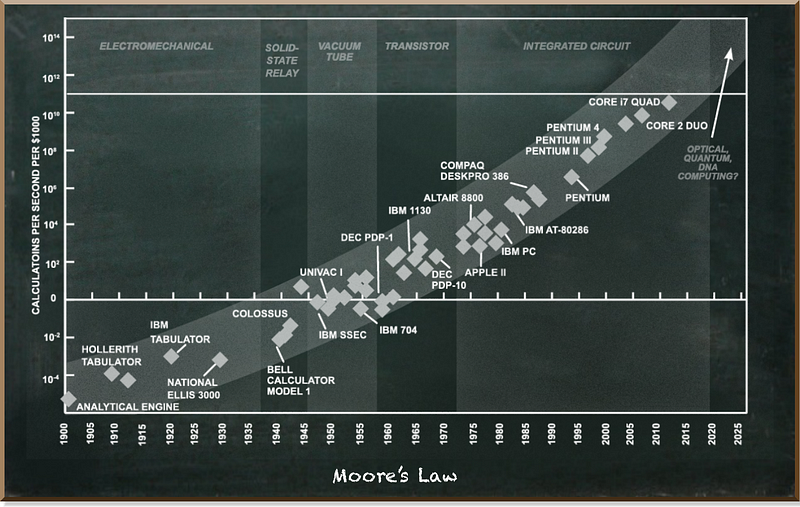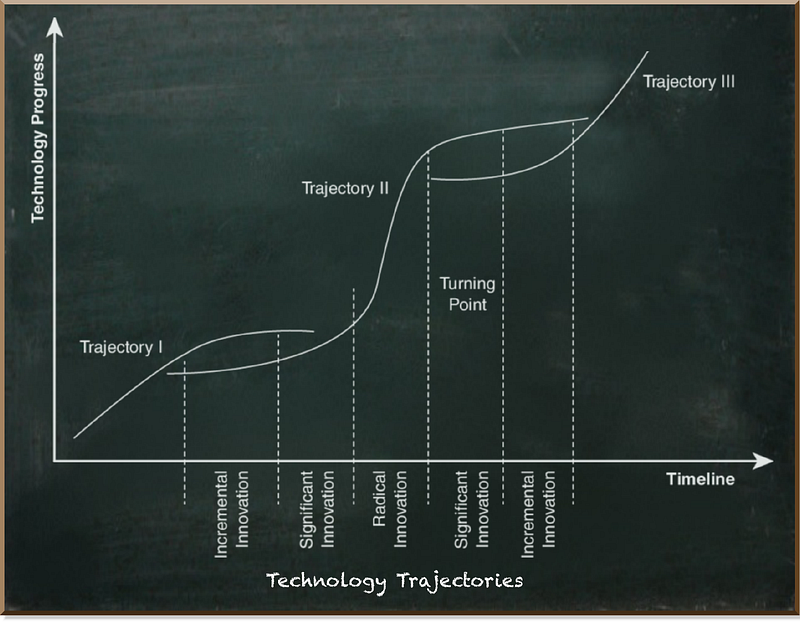Are You Ready for the Quantum Computing Revolution?
Written on
Chapter 1: The Quantum Shift
As we stand on the brink of a new technological era, it's crucial to begin understanding quantum computing. If you're interested in diving into Quantum Machine Learning, consider exploring "Hands-On Quantum Machine Learning with Python."
The rapid advancement of technology may be nearing a halt, signaling the end of Moore's Law. What may seem like a slowdown could instead herald a significant disruption. When this shift occurs, being prepared is essential. Delaying your learning until the change is imminent could result in missed opportunities and the chance to be a leader in this transformation.
With countless technologies emerging, it’s impossible to pursue them all. Thus, it's vital to make informed choices. Acknowledging the impending shift is the first step in deciding whether to engage with new technologies. In this article, we will explore indicators that quantum computing is set to transform our world.
The power of traditional digital computers has historically scaled with the number of transistors. With transistors doubling approximately every two years, we experienced significant growth in computational capacity.

Image by author
Given the limitations of current advancements, our ability to tackle pressing issues—like climate change—seems bleak. To minimize our environmental impact, a comprehensive reevaluation of our societal practices is necessary. If we wish to maintain our standard of living, we must drastically enhance our efficiency in utilizing natural resources.
While we may hope that semiconductor manufacturers will somehow overcome this technological stagnation, even a revival of Moore's Law won't adequately address urgent challenges.
Consider the simulation of molecules; understanding molecular behavior would allow us to bypass many experimental trials, drastically accelerating material development. However, simulating any molecule is becoming increasingly complex, as the computational difficulty rises exponentially with the number of atoms involved.
Even if Moore's Law persisted, simulating molecules with more than 30 atoms would remain unattainable. Hence, we must rethink not only our resource management strategies but also our computational approaches. Solving problems with exponential growth requires computers whose capabilities also expand exponentially.
Fortunately, these advanced computers already exist: quantum computers. Their processing power grows exponentially with the addition of quantum bits. Manufacturers are ambitiously working towards delivering devices that will surpass any classical computer's capabilities.
To date, Moore's Law has masked the urgent changes we need, allowing us to solve new but not necessarily vital problems. However, as this illusion fades, we will face increased pressure to devise new solutions for our challenges. The continuous performance improvement of classical computers has raised the bar for demonstrating a quantum advantage.
Yet, technological superiority alone isn't the only factor in driving change. History has shown that there can be significant delays from the discovery of new technology to its widespread adoption.
Take the steam engine as an example. Developed by Heron of Alexandria in the first century AD, the Aeolipile—a simple steam turbine—was rendered obsolete by the existing labor market. It wasn't until 1,600 years later that steam engines proved their worth over human labor, catalyzing the Industrial Revolution.
Typically, the key determinant of technology adoption is whether it offers a competitive advantage in the marketplace. New technologies often seem inferior until they mature and can showcase their benefits.
The typical trajectory of technological innovation follows an S-curve. Initially, growth is slow, but as technology matures, its value rises sharply before eventually plateauing.

Image by author
We are likely approaching the plateau of classical computing. The conclusion of Moore's Law signals that while progress will continue, we shouldn’t expect substantial leaps forward.
Conversely, new technologies like quantum computing have the potential for exponential growth, but we have yet to fully harness this potential. It's important to remember that not all new technologies will experience such growth. We have seen ostensibly inferior technologies persist in the past.
On the flip side, the introduction of new technologies can lead to unforeseen yet profound changes. Consider ENIAC—the first digital electronic computer. Built in 1946 at the University of Pennsylvania, it was initially designed to calculate artillery trajectories.
After World War II, it seemed to have little practical application, yet it opened doors to possibilities that ultimately transformed society through the advent of digital computers.
Quantum computing represents a potentially disruptive force, and signs indicate it will indeed reshape our world. The pressing question is how we adapt to this emerging technology.
"Isn't quantum computing only for physicists and mathematicians? Isn’t it too complex to learn?"
In essence, no.
Chapter 2: Bridging the Gap Between Quantum and Machine Learning
Machine learning and quantum computing share deep connections. Both concepts have their roots in the 20th century and rely heavily on mathematics, making them seem daunting to those outside of these fields.
However, the surge in machine learning wasn't spurred by theoretical advancements alone; improvements in hardware, the availability of data, and classical software engineering made it possible to train deep neural networks effectively.
Today, one does not need to grasp the intricate mathematics behind neural networks to utilize them fully. Frameworks like TensorFlow and PyTorch simplify the process, enabling users to focus on whether their trained model can recognize the desired patterns.
We saw a similar trend in the intersection of quantum computing and machine learning around 2014. Despite its perceived complexity, the critical breakthroughs were not solely due to mathematical advancements.
To alleviate the daunting mathematical intricacies, software developers have created quantum software development kits (QDKs) such as Cirq and Qiskit.
If you're involved in IT, you're accustomed to adapting to new programming languages, paradigms, frameworks, and libraries. Quantum computing is no exception.
The time to start learning about quantum computing is now. You can either miss this opportunity or be ready when a new technology emerges to disrupt the world.
Do you want to explore Quantum Machine Learning? Check out "Hands-On Quantum Machine Learning with Python."

Chapter 3: Real Experiences with Quantum Computing
The first video titled "I programmed a real quantum computer for the first time" shares a firsthand account of programming a quantum computer, highlighting the learning curve and potential of quantum technology.
The second video, "Will Quantum computing break all encryption? Or is it just vaporware?" explores the implications of quantum computing on encryption and data security, igniting discussions about its future and capabilities.